New module teaches students about the science behind everyday cooking
Experiential learning melds with theory in an innovative science module
What are the chemical components of a chocolate chip cookie? What is the molecular structure of ricotta cheese? What physical processes underlie the baking of a molten chocolate cake?
These are just some of the theoretical questions that students are exploring in a new course this semester, titled The Science of Everyday Cooking.
“Cooking is a delicious tool for teaching science,” explained Assistant Professor of Science (Chemistry) Zhuang Bilin, who had designed and is now teaching the course. “I want to show students that science does not just happen in the laboratory or in the deep universe. It is everywhere around us.”
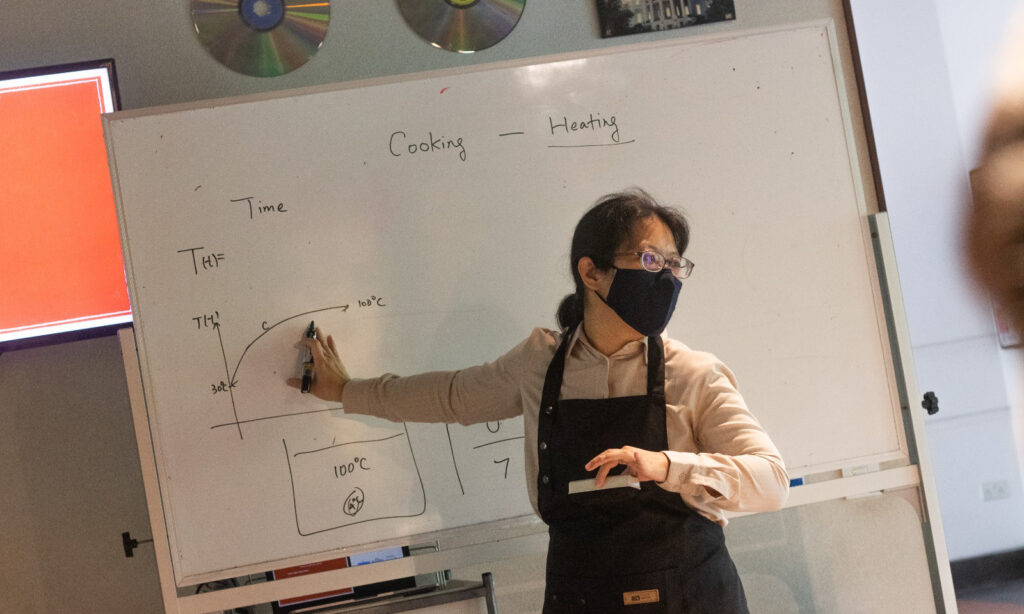 Assistant Professor of Science (Chemistry) Zhuang Bilin is teaching a new module titled the Science of Everyday Cooking. Image taken by Rachel Tey for Yale-NUS College.
Assistant Professor of Science (Chemistry) Zhuang Bilin is teaching a new module titled the Science of Everyday Cooking. Image taken by Rachel Tey for Yale-NUS College.
Indeed, through the everyday medium of cooking, technical scientific concepts are made more accessible, memorable, and fun. To that end, one important element in the course is experiential learning. More than simply going through textbooks, students discover the cooking processes up close through hands-on scientific experiments. For example, in order to better understand heat diffusion during the baking process, students measured the temperature of molten chocolate cake at regular intervals as the batter gradually solidified.
Carine Chan (Class of 2023) shared that she appreciates the interactive nature of the course. She said, “I love how Asst Prof Zhuang uses hands-on learning to teach. Being able to work directly with the food not only helps me become a better learner, but also a better chef because I can see for myself the mechanisms behind why certain things work and some don’t.”
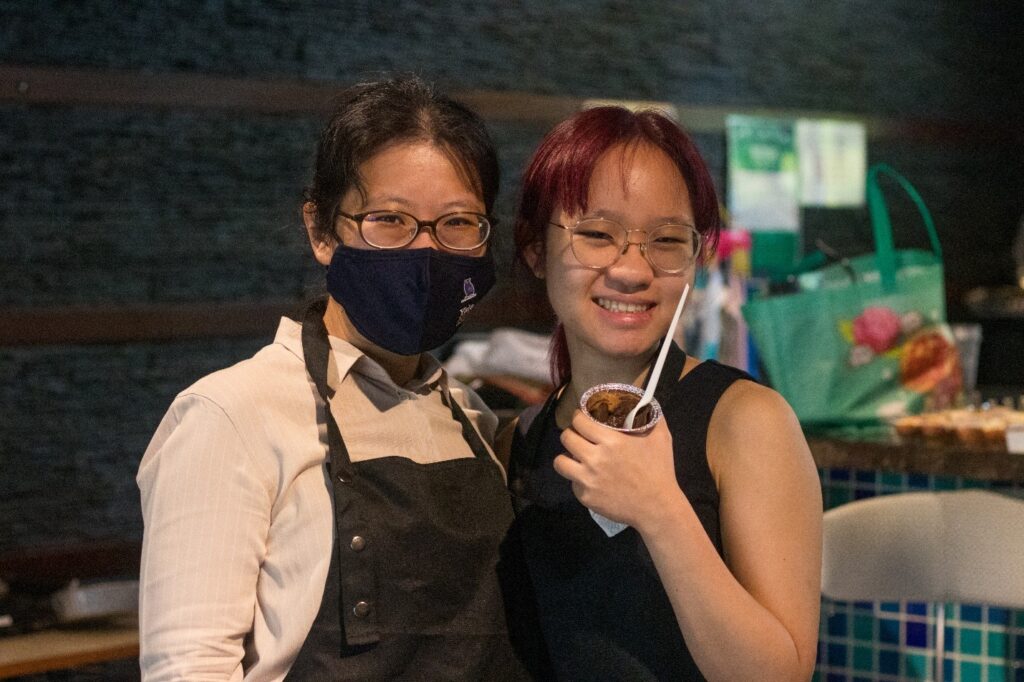 Carine (right) pictured with Assistant Professor of Science (Chemistry) Zhuang Bilin (left).
Carine (right) pictured with Assistant Professor of Science (Chemistry) Zhuang Bilin (left).
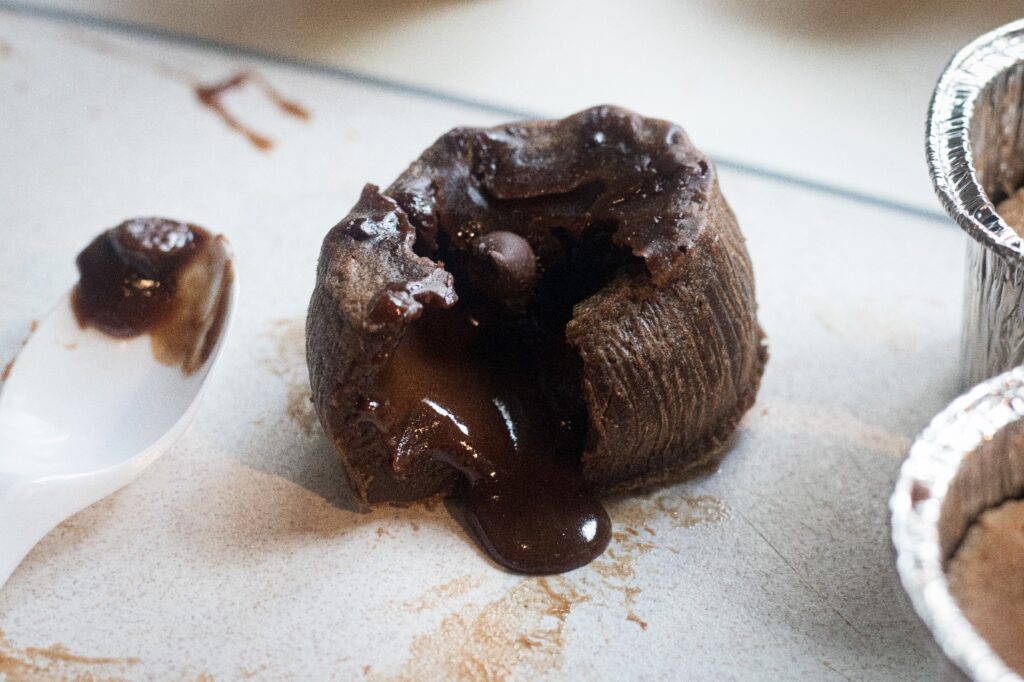 The end product of molten chocolate cake experiment. Images taken by Rachel Tey for Yale-NUS College.
The end product of molten chocolate cake experiment. Images taken by Rachel Tey for Yale-NUS College.
Another experiment involved making ice cream from scratch, using a combination of milk, ziplock bags, ice, and rock salt. The aim was to explore how the concentration of salt solution in ice would affect freezing point depression that subsequently facilitates the freezing of liquid into ice cream.
“In order to make ice cream, we had to shake the cream mixture while it was surrounded in an ice bath in a ziplock bag. Somehow, we ended up playing catch with our laboratory partners because the bag was very cold to touch, so we had to keep tossing it around while shaking the ice cream mixture,” shared Sewen Thy (Class of 2023). “We learnt a lot, had a lot of fun, and even got to eat the ice cream afterwards!”
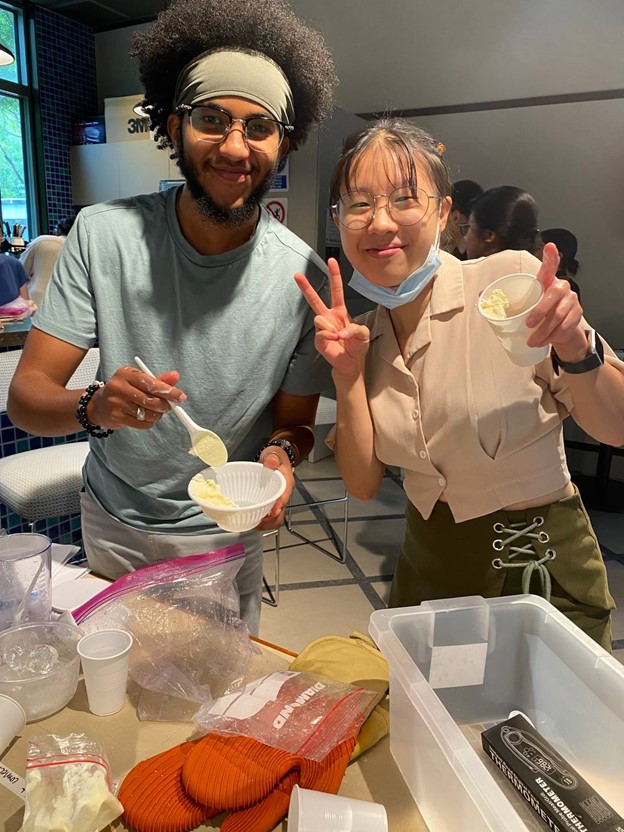 Students enjoying ice cream after an experiment.
Students enjoying ice cream after an experiment.
Students from the course also had the chance to attend a one-day cooking workshop at the Brettschneider’s Baking & Cooking School.
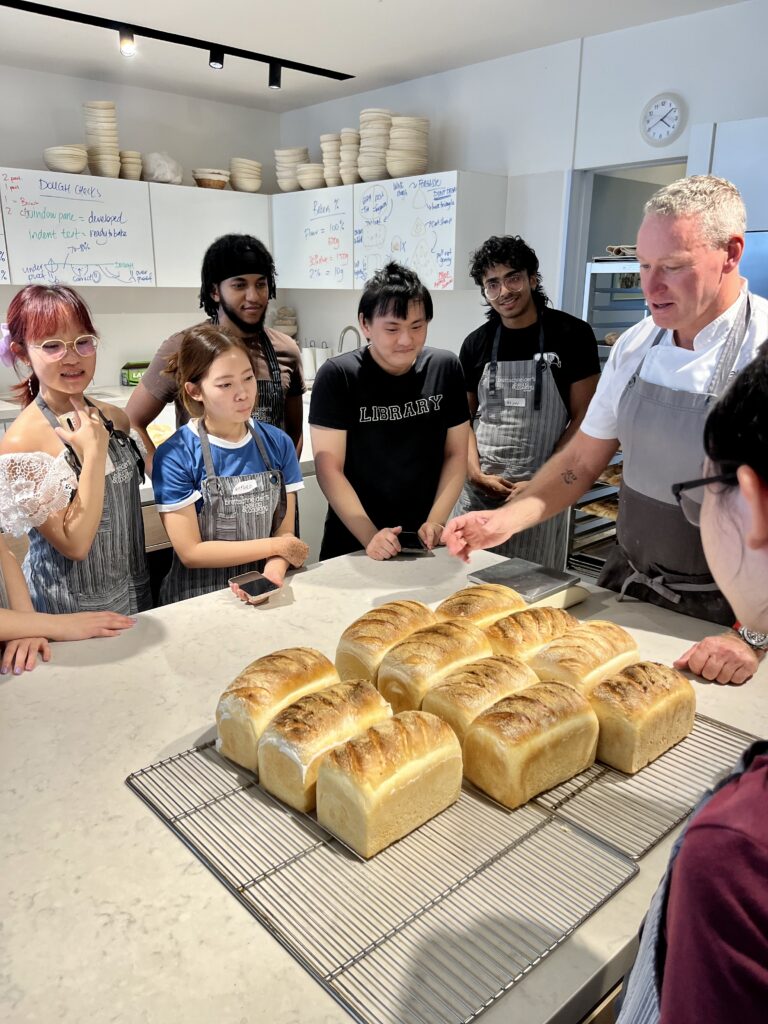
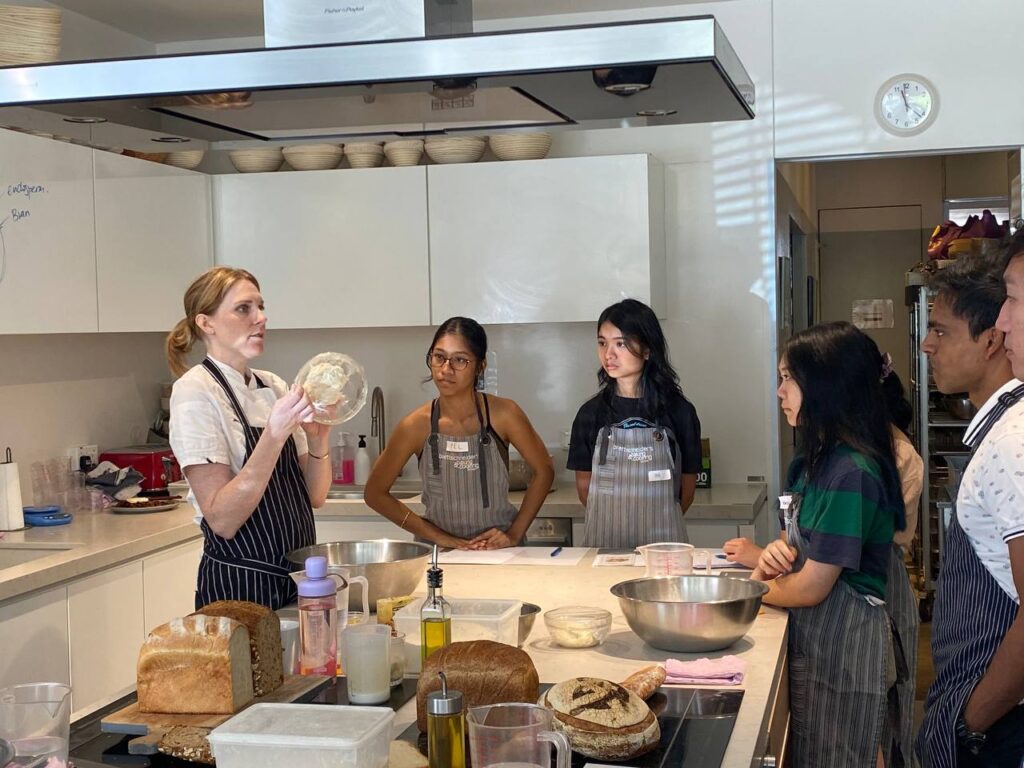 During the baking workshop led by Chefs Dean Brettschneider and Jenna White, students made three types of bread: focaccia, white bread, and fougasse. They also learnt about important concepts such as protein elasticity and extensibility which they will apply to their final class project. Images provided by Asst Prof Zhuang.
During the baking workshop led by Chefs Dean Brettschneider and Jenna White, students made three types of bread: focaccia, white bread, and fougasse. They also learnt about important concepts such as protein elasticity and extensibility which they will apply to their final class project. Images provided by Asst Prof Zhuang.
As the semester nears to a close, Asst Prof Zhuang hopes that the course has enriched students’ skillsets, enabling them to think better as scientists and chefs simultaneously. “Through this course, it is my hope that students will become curious about the phenomena happening around them and be equipped with scientific perspectives, concepts, and tools to explore the answers for themselves.





